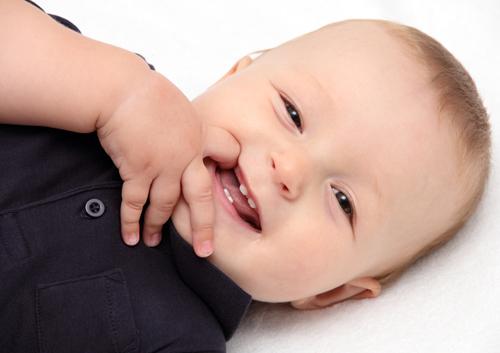Are baby teeth really that important?
September 30th, 2020

Your infant’s first teeth will begin to appear around six to 12 months of age. You might wonder how important these primary teeth really are--we get questions all the time about why baby teeth matter when they are destined to fall out within a few years and be replaced by a full set of permanent teeth. However, baby teeth have important functions, and proper care can set the stage for excellent oral and overall health.
The truth is, baby teeth (known as primary teeth), allow children to chew, speak, laugh, and grow. Importantly, they hold space for adult teeth before they come in! Early loss of baby teeth due to cavities can lead to more severe crowding of the adult teeth. Beyond this, however, keeping your child's teeth healthy can prevent pain and infection and also gives them the best chance of remaining cavity-free into adulthood!
How to Take Care of Baby Teeth
Your baby’s primary teeth are already in his or her mouth at birth; they are just invisible because they have not broken through the gums. Since they are already present, your baby can get cavities if you do not practice proper oral hygiene from the beginning.
- Do not let your baby fall asleep with a bottle in his or her mouth.
- Brush your child’s baby teeth twice a day as soon as they come in.
- Floss your child’s teeth as soon as he or she has two teeth that touch.
- Visit Carolina Pediatric Dentistry for your baby’s first checkup when the first tooth arrives.




